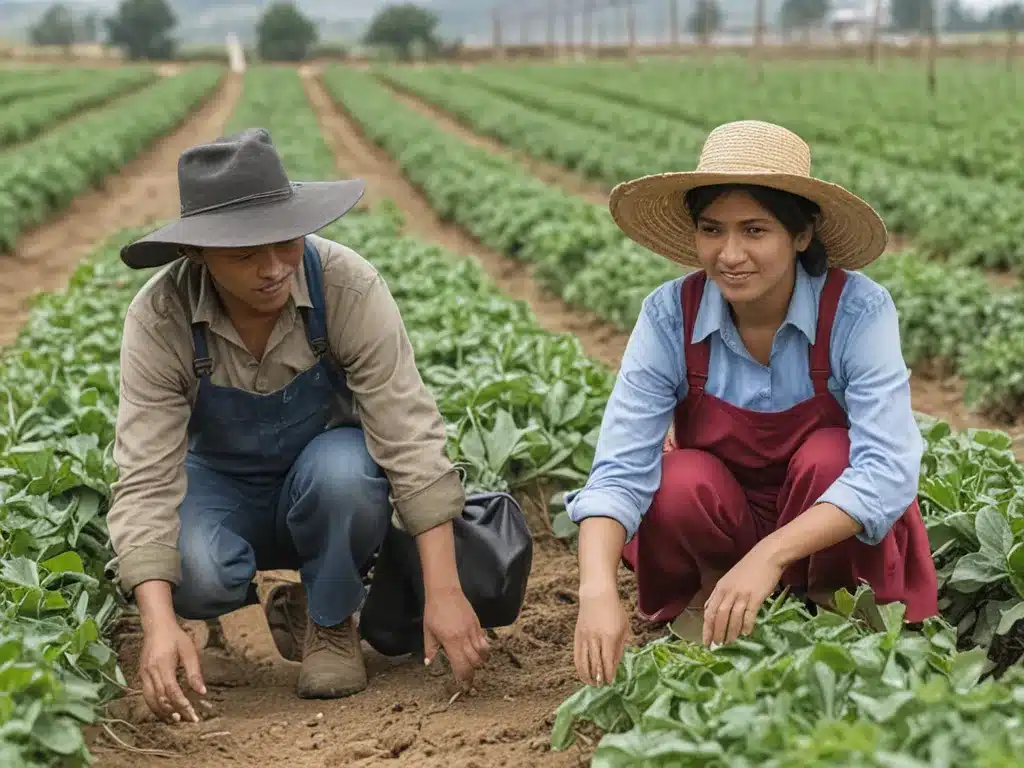
Ensuring Fair Treatment of Farmworkers
As a consumer, I am concerned with the livelihoods and well-being of the people who produce the food I purchase. Many crops are harvested through manual labor that involves enduring difficult conditions in the fields or greenhouses. How can I be sure the farmworkers who performed this essential work received decent compensation and benefits for their efforts?
One method I rely on is purchasing produce from farms that participate in voluntary certification programs like Fair Trade USA or the Equitable Food Initiative. These organizations establish strict standards around issues like pay, health and safety, and grievance systems. Farms in good standing with such programs clearly indicate this designation on their products or websites. Seeing these labels provides confidence the farmers and employees involved were treated fairly.
Another option is searching for farms that publicly share details about their operations, like whether workers receive a living wage and overtime pay, take adequate breaks, and have access to medical care. Some post these disclosures directly on their online storefronts or on organizations like the Corporate Accountability Universe that collect such transparency reports from participating businesses. Reading these self-reported accounts helps clarify what labor standards are enforced at specific farms and packing houses.
Prioritizing Locally-Grown Foods
Being able to directly connect with farms through farmers markets or CSAs offers valuable insights into their practices. At these venues, I can engage farmers in conversations to learn about their philosophy toward worker welfare. Do they see employees as important partners deserving of fair compensation and respect? Speaking face-to-face builds trust that the values discussed are authentically upheld.
Buying seasonally from nearby growers also reduces transportation impacts that contribute to climate change. When crops can be harvested and delivered over shorter distances, there are lower emissions from fossil fuels burned in trucks and planes. Minimizing the carbon footprint of my food purchases aligns with my goal of sustainable sourcing.
The ability to visit farms directly gives a firsthand view into their operations. At my local CSA, I periodically participate in workdays that offer a glimpse behind the scenes. Observing interactions between owners and employees provides an indication of the overall work environment. Seeing smiles and hearing laughter suggests positive morale and conditions.
Verifying Supply Chain Transparency
With most grocery items, it is difficult to gain useful insights into the full supply chain through just the product label. However, certain retailers and brands are making progress in transparency. Some publish lists of their primary suppliers or allow traceability of ingredients back to specific farms through blockchain records or QR codes.
The Non-GMO Project maintains an open database documenting the verified sources of various ingredients. For example, one can look up which corn growers and milling facilities were approved to supply particular brands of cornstarch. This eliminates anonymous intermediaries and allows consumers to directly research suppliers in an accountable supply chain.
Retailers increasingly provide robust sourcing maps on their websites that outline multitier supplier networks all the way back to primary production. One large organic retailer even hosted multi-day trips for customers to visit origin farms in key growing regions like California and Mexico. These hands-on experiences bring transparency to life in a deeply memorable way.
As technology advances, more nuanced tracing systems will likely emerge. For now, seeking out front runner brands pioneering open disclosures supports the growth of responsible sourcing practices industry-wide. With informed choices, consumers can incentivize ethical priorities around farmworker welfare and supply chain accountability.



















